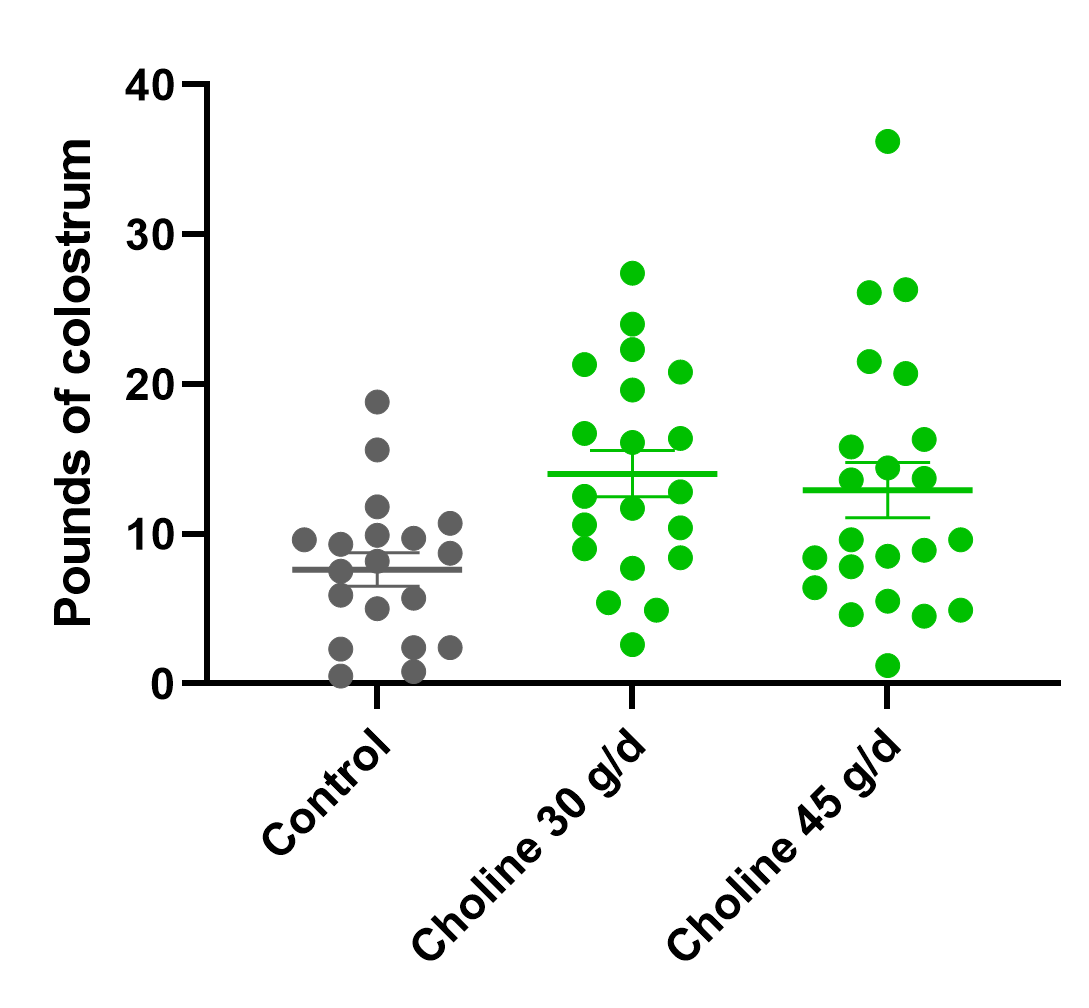Colostrum Challenge: Choline vs. Seasonal Drop
By late October, many dairy operations experience a decline in colostrum supply, which is critical to the health of newborn calves as their primary source of passive immunity. This seasonal decline varies greatly by farm, by cow, and by other factors, but correlates with lessening daylight. Shorter days, less colostrum.
Also, there is the parity effect on colostrum supply. Older cows tend show a greater decline in colostrum output in autumn, so that multiparous cows create a deficit in farm stocks of colostrum going into winter.
One way to extend on-farm stocks is commercial colostrum replacer, which producers usually reserve for emergencies because of the high cost. What about more economical solutions?
Choline for colostrum
Many studies have shown that rumen-protected (RP) choline supplementation, like RP-methionine, can enhance milk yield in early and peak lactation. But there has been little research on dietary choline’s effect on colostrum.
Dr. Barry Bradford, Michigan State University, points to recently published research by Swartz et al. (link below) showing that feeding RP-choline during the close-up period nearly doubled colostrum yield in second and third parity cows.

The researchers studied periparturient Holstein cows, finding that RP-choline supplementation:
- Increased colostrum yields without affecting colostrum quality
- Increased colostrum phosphocholine concentrations from second parity cows
- Increased trimethylamine N-oxide concentrations in colostrum
The researchers also suggested that choline requirements might be greater in 3+ parity cows compared with second parity.
Note: RP-choline treatment means and uncertainty
bars do not overlap, showing effect significance.
No dietary requirement, but much interest
Colostrum aside, it’s worth noting that the latest edition of Nutrient Requirements of Dairy Cattle (NASEM/NRC 2021) mentions the positive effects of RP-choline on milk production and cow health… “but the committee did not establish a dietary requirement for choline because it is synthesized by cows and because of potential variability in commercial products.”
RP-choline also received significant attention at the 2022 American Dairy Science Association meeting in Kansas City, including research supported by multiple manufacturers. Oral presentations and posters focused on production, health, and metabolism, but not specifically on colostrum.
“We don’t know yet whether choline supplementation can overcome seasonal declines in colostrum,” Bradford cautions, “but it’s a good possibility and may have the potential to help sustain on-farm stocks when they’re needed the most.”
For details, click here.
Questions?
Email FeedInsight 4Dairy

